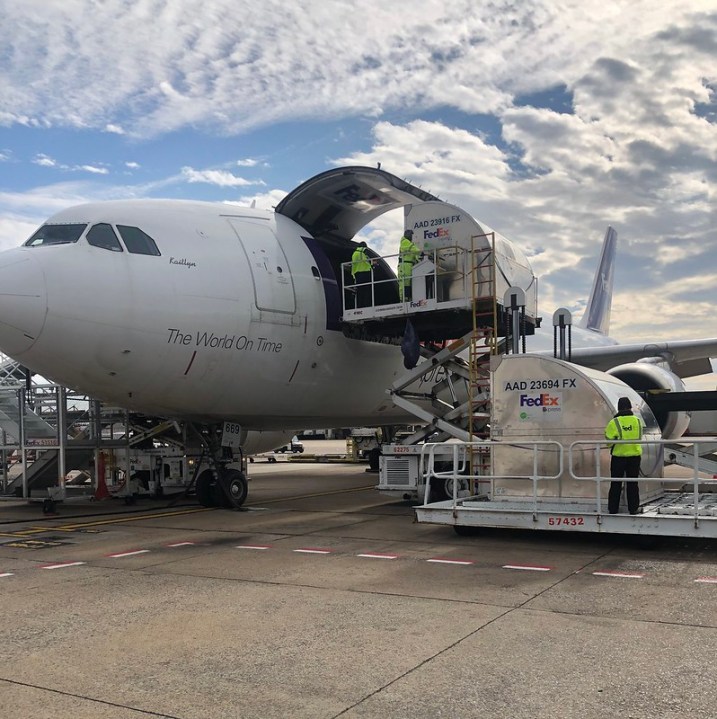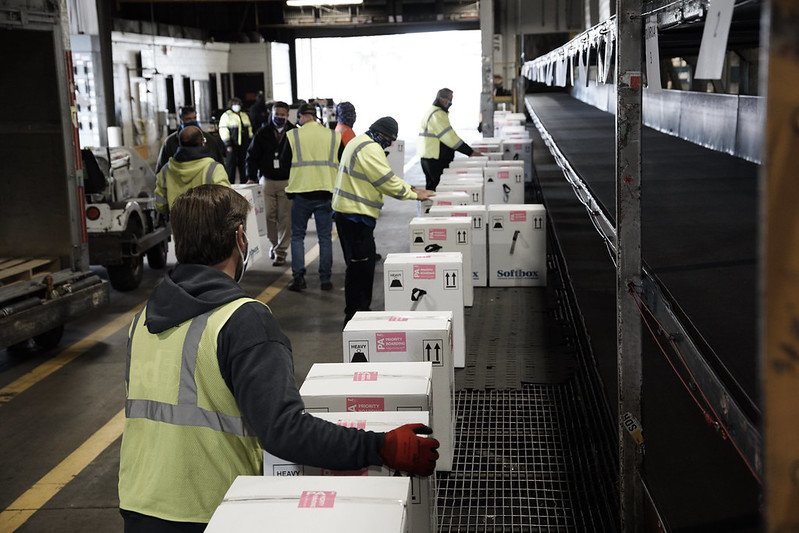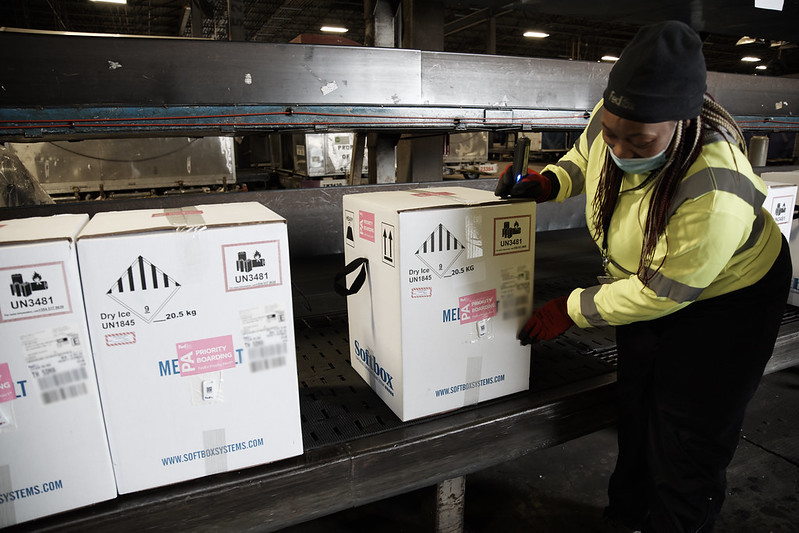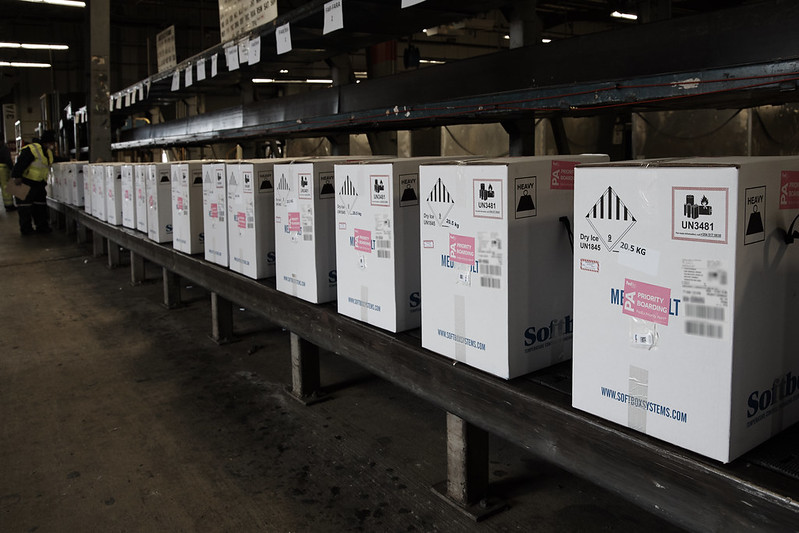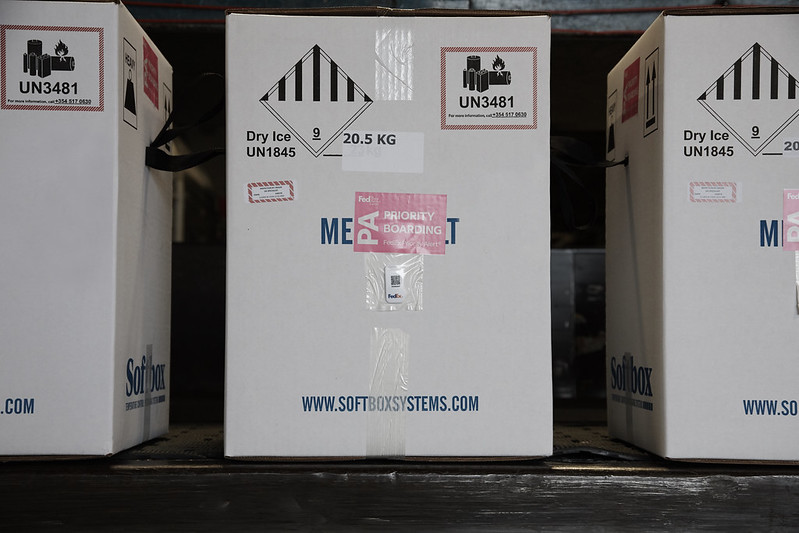MEMPHIS, Tenn. — The first vaccine aimed at stopping the spread of COVID-19 has arrived at hospitals across the Mid-South with some vaccinations already under way.
Tennessee Governor Bill Lee said 975 doses of Pfizer’s COVID-19 vaccine were received over the past few hours with an additional 56,550 doses anticipated for arrival on Thursday. Another 56,000 doses will be made available in January.
Here’s where hospitals in Shelby County, DeSoto County and around the Mid-South stand when it comes to the vaccine:
- Shelby County Health Department: Vaccines are being sent directly to the hospitals first. They don’t have an exact date on when the vaccine will receive it, but said it’s anticipated after the Christmas holiday.
- Baptist Hospital: They expect to receive the Pfizer vaccine at four of their hospitals this week. NEA Baptist Hospital in Jonesboro will receive the vaccine Monday and still start vaccinating employees Monday. Baptist Desoto in Southaven and Mississippi Baptist Medical Center in Jackson will receive the vaccine Tuesday, and Baptist Memphis will receive it on Thursday.
- Methodist Hospital: Anticipates receiving the vaccines this week and will begin distribution as soon as possible.
- St. Francis: They anticipate getting the vaccine soon and will begin giving it out as soon as possible.
- LeBonheur: They do not have a specific date for when they will get the vaccine, but they said it will be some point this week. Distribution will begin immediately.
- Memphis Veterans Affairs Medical Center: Has been selected as one of 37 VA sites to get initial doses of the vaccines, the U.S. Department of Veteran Affairs announced Monday.
Arkansas Governor Asa Hutchinson tweeted the state had received their first batch of vaccines at 8:10 a.m. Monday. One batch will go to the Arkansas Department of Health while the others will be sent to the following locations to be distributed to health care workers:
- Arkansas Department of Health
- Arkansas Heart Hospital
- Baptist Health – Fort Smith
- Baptist Health – Little Rock
- Baptist Health – NLR
- Baxter Regional Medical Center
- CHI St Vincent – Hot Springs
- CHI St Vincent – Little Rock
- Conway Regional Medical Center
- Hyde Pharmacy
- Jefferson Regional Medical Center
- Kavanaugh Pharmacy
- Mercy Hospital – Fort Smith
- Mercy Hospital – Rogers
- NEA Baptist Memorial Hospital
- Northwest Medical Center – Springdale
- St. Bernards Medical Center
- UAMS Medical Center
- Unity Health
- Village Healthmart Pharmacy #1
- Washington Regional Medical Center
- Westside Pharmacy
- White River Medical Center
- Woodsprings Pharmacy
Crittenden County expects to get a shipment later this week.
The vaccine has also arrived in Mississippi, with top leaders at the Mississippi Department of Health announcing they will be among the first to get vaccinated on Monday. Those health leaders include State Health Officer Dr. Thomas Dobbs, State Epidemiologist Dr. Paul Byers and Senior Deputy/ Director of Health Protection Jim Craig.
The vaccines arrived in Memphis on Sunday. Several hours later, FedEx released a statement online saying the first deliveries had been made.
“We’ve safely made our fist deliveries of @pfizer- @BioNTech_Group COVID-19 vaccines,” the company tweeted. “We’re honored to be able to use our network to transport these critical vaccines in the U.S., and eventually the world.”
Richard Smith with FedEx Express told NBC’s TODAY that distribution has gone smoothly so far and the first delivery was made just before 6 a.m. Monday to a facility up in Massachusetts. The company anticipates delivering vaccines to 70 to 80 facilities over the course of the day.
President Donald Trump also tweeted about the vaccine early Monday morning confirming that the first vaccine had been administered. Reports from Fox News indicate one of the first people inoculated was Sandra Lindsay, a critical care nurse in New York who has spent the past 10 months on the front lines battling the virus.
Frontline healthcare workers are first on the list to get the vaccine, but there’s still a lot of questions about it’s effectiveness.
WREG-TV spoke to one doctor who says he believes it’s safer to get the vaccine than not to.
“I have chosen not to get vaccinated in the past once I put pen to paper and compared the risks. This is not one of those times,” Dr. Stephen Threlkeld, an Infectious Disease Specialist, said.
Threlkeld of Baptist Hospital’s says he’s had his hand out for a COVID-19 vaccine for quite a while, and now the time has finally come.
The first wave of Pfizer’s COVID-19 vaccines landed Sunday at the FedEx world hub in Memphis. Pfizer anticipates shipping almost three-million doses this week.
Dr. Threlkeld says he’s looked at all the data in the vaccine trials and believes getting the vaccine is the best option.
“It is clear to me that I have a larger chance of being healthy and happy if maybe not wise a year from now if I get the vaccine than if I do not,” Threlkeld said.
The FDA approved the Pfizer vaccine for emergency use for people who are 16-years and older.
According to clinical trials, Pfizer says the vaccine is most effective following two doses given at least three weeks apart.
Side effects include injection site pain and swelling, chills, fever, and possible severe allergic reaction.
All of which Dr. Threlkeld says can be normal for a vaccine.
“But this is kind of a small price to pay. People are worried about longer term side effects from this vaccine and we just haven’t seen it,” Threlkeld said.
Alongside healthcare workers, those living in nursing homes are among the first to be vaccinated.
Memphis/Shelby County COVID task force member Dr. Manoj Jain says he also plans on receiving the vaccine.
He says how the vaccine will be distributed to the general public is still in the works, but by February, he anticipates at least 30-percent of the population will be vaccinated.
“You either get the shot, or you’ll get the virus sometime in the next three to six months because it’s in the community, so prevalent in the community,” Dr. Jain said.
Both doctors Jain and Threlkeld say it may be months until the public will have access to the vaccine, and we begin to see a decrease in covid hospitalizations.
Doctors say you should still abide by all the health directives, social distance, and wear a mask.
- Financial Friday: Unlock Your Home’s Potential with a HELOC from Leaders Credit Union
- Bright Spot 4-25
- Trump ordered to give some Venezuelans 21 days notice before deportations
- Overton Park Shell reveals free concert series lineup
- Operation Babylift crash survivor still searching for answers 50 years later

